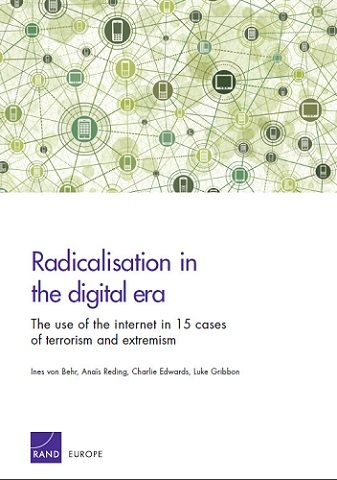Radicalisation in the Digital Era
Radicalisation in the Digital Era
by Ines von Behr, et al.
eBook Details:
Publisher: RAND Corporation 2013
Number of pages: 76
eBook Description:
This paper presents the results from exploratory primary research into the role of the internet in the radicalisation of 15 terrorists and extremists in the UK. In recent years, policymakers, practitioners and the academic community have begun to examine how the internet influences the process of radicalisation: how a person comes to support terrorism and forms of extremism associated with terrorism. This study advances the evidence base in the field by drawing on primary data from a variety of sources: evidence presented at trial, computer registries of convicted terrorists, interviews with convicted terrorists and extremists, as well as police senior investigative officers responsible for terrorist investigations. The 15 cases were identified by the research team together with the UK Association of Chief Police Officers (ACPO) and UK Counter Terrorism Units (CTU). The research team gathered primary data relating to five extremist cases (the individuals were part of the Channel programme, a UK government intervention aimed at individuals identified by the police as vulnerable to violent extremism), and ten terrorist cases (convicted in the UK), all of which were anonymised. Our research supports the suggestion that the internet may enhance opportunities to become radicalised and provide a greater opportunity than offline interactions to confirm existing beliefs. However, our evidence does not necessarily support the suggestion that the internet accelerates radicalisation or replaces the need for individuals to meet in person during their radicalisation process. Finally, we didn’t find any supporting evidence for the concept of self-radicalisation through the internet.
Download or read it online here: Radicalisation in the Digital Era









